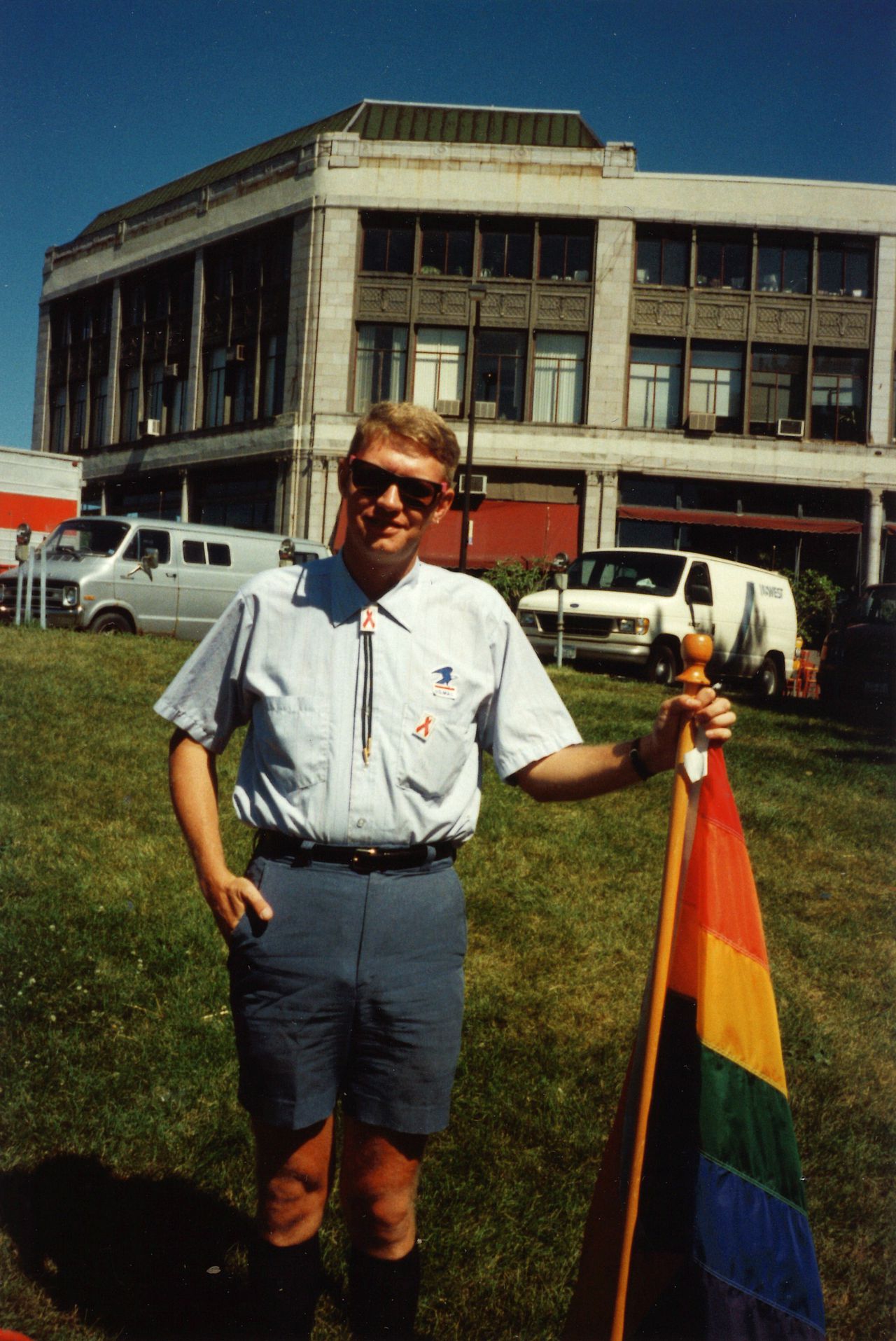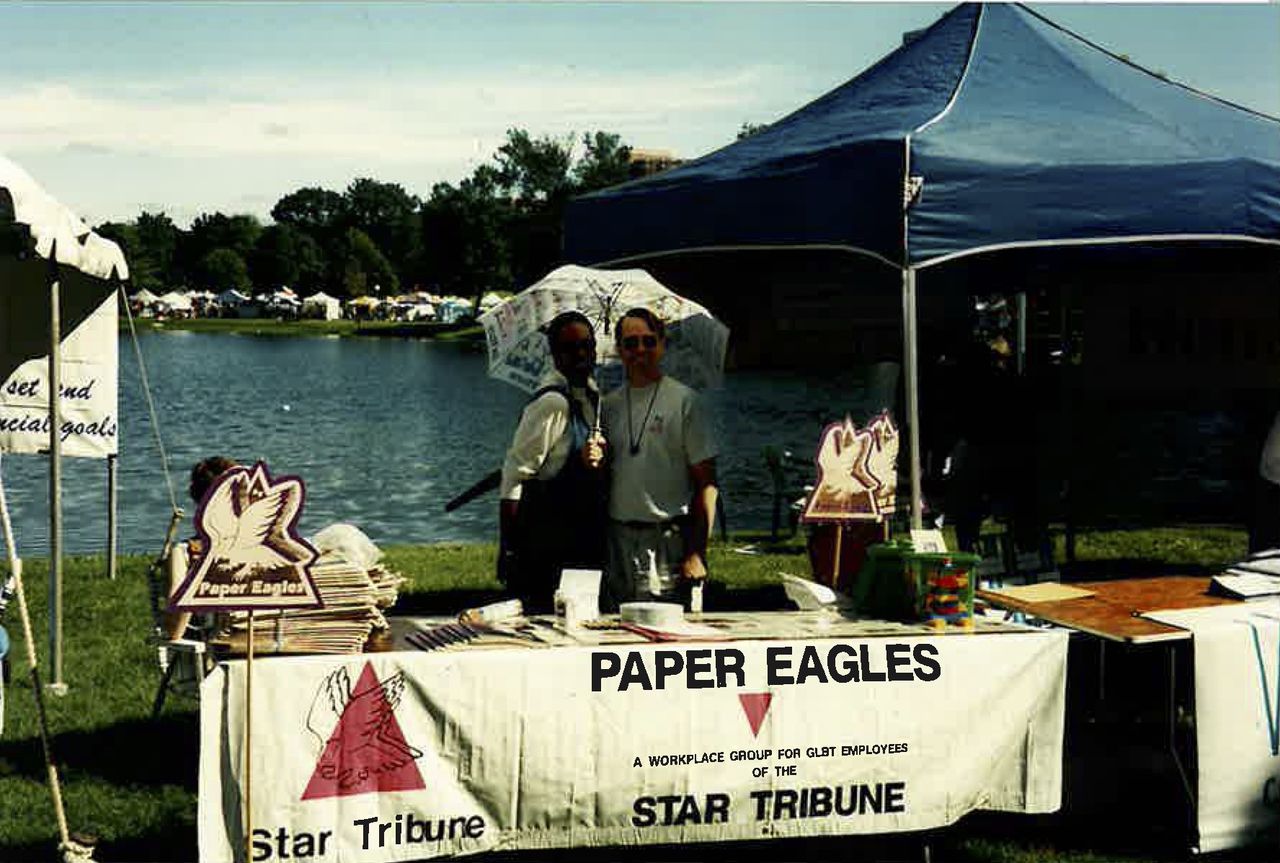From the Queer Archives: LGBTQ workplace alliances that shaped a movement
Parade, protests, and organizing have long been quintessential to LGBTQ community building and integral to advocating for our rights. In national and popular memory, we may think of marching in the streets for gay rights and pride parades, organizing for AIDS healthcare research and same sex marriage, and now gender affirming care and bathroom/locker room access for the transgender community. In celebration of Labor Day, we’re taking a look at the history of local level organizing for workplace rights through two LGBTQ workplace alliances in Minneapolis. These small grassroots actions gain strength from the activism happening throughout the country, while building national movements.
The Paper Eagles
In August of 1990, employees of the Star Tribune, Minneapolis’ largest daily newspaper, formed the Paper Eagles. With a mission to “strengthen and support a diverse environment within the Star Tribune so the unique issues of Gay and Lesbian employees are addressed and resolved.” Formed after two employees and partners, Stephanie Grey and Wendi Storhoff, met with the board of the US West Eagles, representing employees of the telecommunication company.
As a workplace alliance, the Paper Eagles advocated for domestic partnership benefits for Star Tribune employees, protections from discrimination, advocated for AIDS awareness, and worked towards a cultural shift to make it safe for employees to be out at work. By hosting speakers, workplace climate surveys, and communicating directly with leadership as a collective, the Paper Eagles were working towards a safer work environment for all gay and lesbian employees of the Star Tribune. Although they began marching in the Twin Cities Pride Parade in 1991, June 27, 1993, the Paper Eagles marched in the parade and for the very first time that they were able to march with the Star Tribune logo.
Paper Eagles Twin Cities Pride 1996
The Gay/Lesbian Postal Employees Network
The Gay/Lesbian Postal Employees’ Network (G/L PEN) was formed in 1992 by Richard Evans who sought to organize out employees of the United States Postal Service Northland District. Based in the Twin Cities, this initial group met outside of the workplace to grow community through their shared identities and occupation. As an organization they advocated for a safer and more equitable workplace for GLBT postal employees at the local level—much like the Paper Eagles, at least initially.
Members of G/L PEN attended the 1993 National March on Washington for Lesbian, Gay, and Bi Equal Rights and Liberation. At this march G/L PEN members met other GLBT postal workers from across the country. This led to the formation of G/L PEN chapters and positioned the Twin Cities as the national headquarters. Chapters sprang up in Los Angeles, San Francisco, Miami, Phoenix, Dallas/Fort Worth, and Western Massachusetts.
When USPS released the commemorative AIDS Awareness Postage Stamp on December 1, 1991, the stamp quickly became an emblem for G/L PEN – not just as a symbol, but as a marker of GLBT community recognition from USPS. This was a first step in continued advocacy for workplace acceptance of gay and lesbian postal workers.

G_L PEN Postal Employee 1998
From the Queer Archives is a monthly post dedicated to LGBTQ history by culling queer and trans history from archival materials across the United States. Reckon focuses especially in the Midwest, a region where the experiences, contributions, and struggles of queer people and communities have been overlooked in historical narratives.
This series is critical in our current political and cultural moment where LGBTQ history, books, and representation are being removed from schools and public libraries. It is through historical visibility that LGBTQ people can understand this moment and themselves as part of a long legacy of queer and trans community-building.
Aiden M. Bettine is a trans archivist and historian. He is the Curator of the Tretter Collection in GLBT Studies at the University of Minnesota Libraries and the co-founder of Late Night Copies Press, a Minneapolis-based micropress that publishes zines on queer and trans history, libraries, and archives. He specializes in researching and writing about queer and trans history throughout the Midwest.
